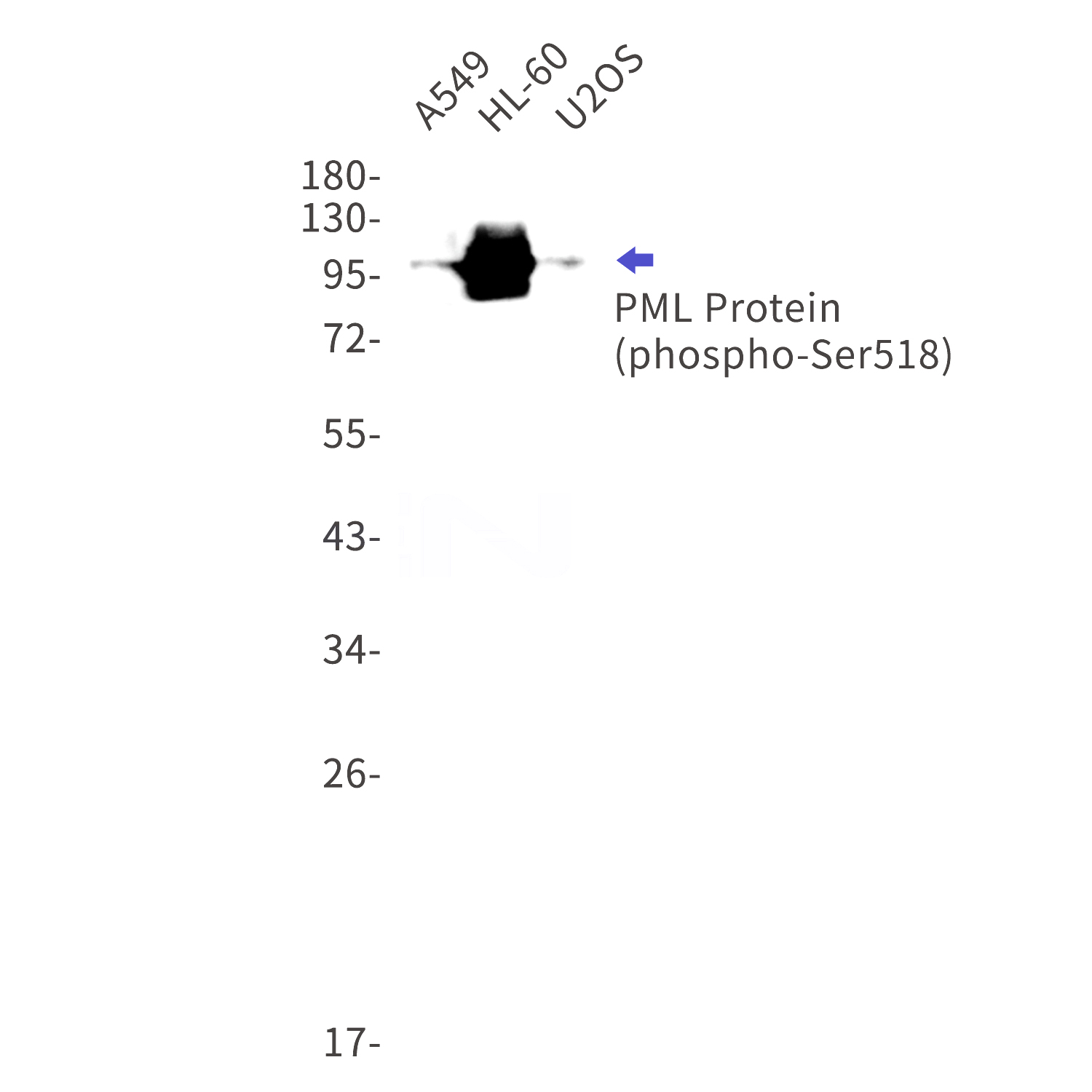-
Product Name
Anti-phospho-PML Protein (Ser518) Rabbit antibody
- Documents
-
Description
phospho-PML Protein (Ser518) Rabbit monoclonal antibody
-
Tested applications
WB, IHC-P
-
Species reactivity
Human, Mouse
-
Isotype
Rabbit IgG
-
Preparation
Antigen: A synthetic phosphopeptide corresponding to residues surrounding Ser518 of human PML Protein
-
Clonality
Monoclonal
-
Formulation
50nM Tris-Glycine(pH 7.4), 0.15M NaCl, 40%Glycerol, 0.01% sodium azide and 0.05% BSA
-
Storage instructions
Store at 4°C short term. Store at -20°C long term. Avoid freeze / thaw cycle.
-
Applications
WB: 1/1000
IHC: 1/50
-
Validations

Western blot detection of phospho-PML Protein (Ser518) in A549,HL-60,U2OS cell lysates using phospho-PML Protein (Ser518) Rabbit mAb(1:1000 diluted).Predicted band size:98kDa.Observed band size:98-117kDa.
-
Background
The protein encoded by this gene is a member of the tripartite motif (TRIM) family. The TRIM motif includes three zinc-binding domains, a RING, a B-box type 1 and a B-box type 2, and a coiled-coil region. This phosphoprotein localizes to nuclear bodies where it functions as a transcription factor and tumor suppressor. Its expression is cell-cycle related and it regulates the p53 response to oncogenic signals. The gene is often involved in the translocation with the retinoic acid receptor alpha gene associated with acute promyelocytic leukemia (APL). Extensive alternative splicing of this gene results in several variations of the protein's central and C-terminal regions; all variants encode the same N-terminus. Alternatively spliced transcript variants encoding different isoforms have been identified. [provided by RefSeq, Jul 2008]
Related Products / Services
Please note: All products are "FOR RESEARCH USE ONLY AND ARE NOT INTENDED FOR DIAGNOSTIC OR THERAPEUTIC USE"
